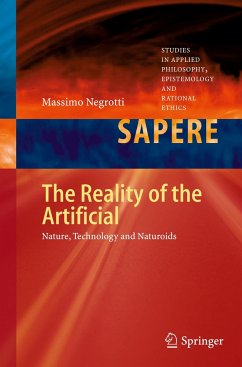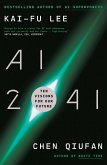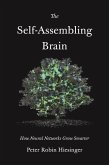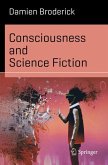The human ambition to reproduce and improve natural objects and processes has a long history, and ranges from dreams to actual design, from Icarus's wings to modern robotics and bioengineering. This imperative seems to be linked not only to practical utility but also to our deepest psychology. Nevertheless, reproducing something natural is not an easy enterprise, and the actual replication of a natural object or process by means of some technology is impossible. In this book the author uses the term naturoid to designate any real artifact arising from our attempts to reproduce natural instances. He concentrates on activities that involve the reproduction of something existing in nature, and whose reproduction, through construction strategies which differ from natural ones, we consider to be useful, appealing or interesting.
The development of naturoids may be viewed as a distinct class of technological activity, and the concept should be useful for methodological research into establishing the common rules, potentialities and constraints that characterize the human effort to reproduce natural objects. The author shows that a naturoid is always the result of a reduction of the complexity of natural objects, due to an unavoidable multiple selection strategy. Nevertheless, the reproduction process implies that naturoids take on their own new complexity, resulting in a transfiguration of the natural exemplars and their performances, and leading to a true innovation explosion. While the core performances of contemporary naturoids improve, paradoxically the more a naturoid develops the further it moves away from its natural counterpart. Therefore, naturoids will more and more affect our relationships with advanced technologies and with nature, but in ways quite beyond our predictive capabilities.
The book will be of interest to design scholars and researchers of technology, cultural studies, anthropology and the sociology of scienceand technology.
The development of naturoids may be viewed as a distinct class of technological activity, and the concept should be useful for methodological research into establishing the common rules, potentialities and constraints that characterize the human effort to reproduce natural objects. The author shows that a naturoid is always the result of a reduction of the complexity of natural objects, due to an unavoidable multiple selection strategy. Nevertheless, the reproduction process implies that naturoids take on their own new complexity, resulting in a transfiguration of the natural exemplars and their performances, and leading to a true innovation explosion. While the core performances of contemporary naturoids improve, paradoxically the more a naturoid develops the further it moves away from its natural counterpart. Therefore, naturoids will more and more affect our relationships with advanced technologies and with nature, but in ways quite beyond our predictive capabilities.
The book will be of interest to design scholars and researchers of technology, cultural studies, anthropology and the sociology of scienceand technology.
"This book presents an interesting and deep discussion of some of the principle problems of artificial reality. The point of view of the author ... will help computer science readers broaden their understanding of the classical vision of the subject. ... The book presents an interesting approach for the interpretation of artificial reality and artificial things." (Pietro Hiram Guzzi, Computing Reviews, November 14, 2012)








